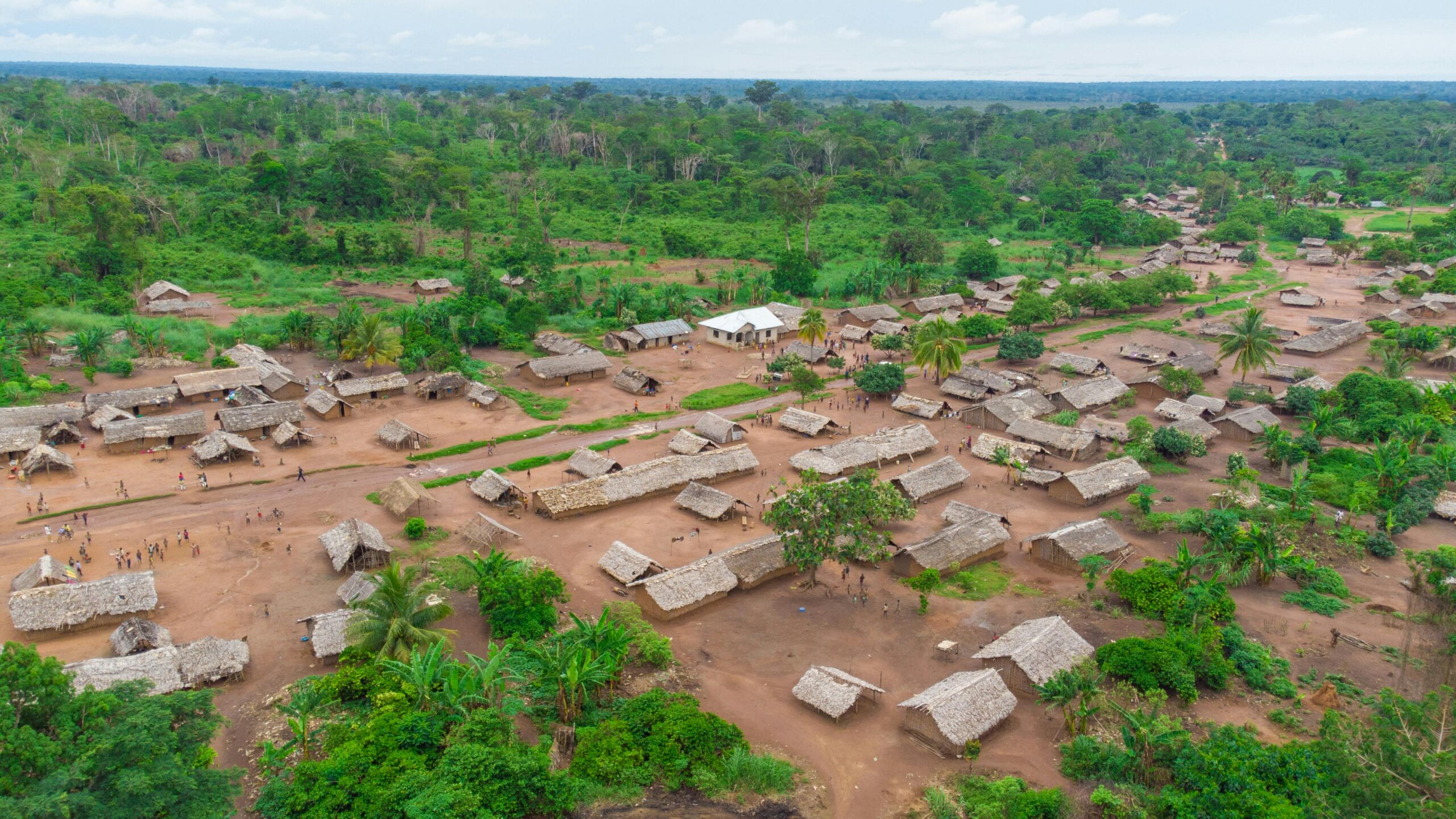In a world facing environmental crises, embracing ecocentric ethics offers humanity a transformative pathway toward sustainable living, ecological balance, and a harmonious coexistence with all life forms on Earth.
🌍 Understanding Ecocentric Ethics: Beyond Human-Centered Values
Ecocentric ethics represents a fundamental shift in how we perceive our relationship with nature. Unlike anthropocentric worldviews that place humans at the center of moral consideration, ecocentrism recognizes the intrinsic value of all living beings and ecosystems. This philosophical approach acknowledges that nature has worth independent of its utility to humanity, challenging centuries of exploitative practices that have brought our planet to the brink of ecological collapse.
The foundations of ecocentric thinking can be traced to indigenous wisdom traditions that have long understood the interconnectedness of all life. These cultures viewed themselves as participants within nature rather than masters over it. Today, as climate change, biodiversity loss, and environmental degradation accelerate, revisiting these wisdom traditions becomes not merely philosophical but existentially necessary for human survival and planetary health.
Ecocentric ethics demands that we expand our moral circle to include non-human life forms, ecosystems, and even geological processes. This expansion doesn’t diminish human value but rather contextualizes humanity within the broader web of life. When we recognize that healthy ecosystems provide the very foundation for human wellbeing, protecting nature becomes inseparable from protecting ourselves.
The Ecological Crisis: Why Traditional Ethics Fall Short
Contemporary environmental challenges reveal the limitations of anthropocentric ethical frameworks. Traditional moral philosophies often struggle to address long-term environmental consequences because they prioritize immediate human interests over ecological sustainability. This shortsighted approach has resulted in deforestation, ocean acidification, species extinction, and atmospheric changes that threaten life as we know it.
The current extinction crisis exemplifies this failure. Scientists estimate that species are disappearing at rates 1,000 times higher than natural background rates. Under anthropocentric ethics, these extinctions might be justified if they serve human economic interests. Ecocentric ethics, however, recognizes each species as an irreplaceable expression of evolutionary creativity with inherent worth beyond its utility to humans.
Climate change presents another compelling case for ecocentric thinking. The atmospheric carbon concentrations we’ve created through industrial activity threaten not only human civilization but countless ecosystems and species. Addressing this crisis requires moving beyond calculations of human cost-benefit analysis to embrace responsibility for our impact on the entire planetary system.
🌱 Principles of Ecocentric Living in Daily Practice
Translating ecocentric ethics into daily life requires conscious choices that minimize ecological harm and support regenerative practices. This transformation begins with consumption patterns. By reducing material consumption, choosing sustainably produced goods, and embracing minimalism, individuals can significantly decrease their environmental footprint while often improving their quality of life.
Food choices represent one of the most impactful areas for applying ecocentric principles. Plant-based diets generally require fewer resources and generate lower greenhouse gas emissions than meat-intensive diets. Supporting local, organic agriculture reduces transportation emissions while promoting biodiversity and soil health. Ecocentric eating means considering not just nutritional value but the ecological relationships that brought food to your plate.
Practical Steps Toward Ecocentric Living
- Reduce energy consumption through efficiency improvements and renewable energy adoption
- Choose transportation options that minimize carbon emissions, including walking, cycling, and public transit
- Support businesses and organizations committed to ecological sustainability and environmental justice
- Participate in habitat restoration, tree planting, and conservation initiatives in your community
- Reduce waste through composting, recycling, and embracing circular economy principles
- Educate yourself and others about ecological interconnections and environmental issues
- Advocate for policies that protect ecosystems and limit environmental degradation
Ecocentric Economics: Reimagining Prosperity
Current economic systems often treat nature as an externality—something outside the balance sheet whose degradation carries no cost. Ecocentric economics challenges this assumption by integrating ecological health into definitions of wealth and prosperity. This approach recognizes that true economic security depends on maintaining the ecological systems that provide clean air, water, fertile soil, and climate stability.
The concept of natural capital acknowledges that ecosystems provide services worth trillions of dollars annually—pollination, water filtration, carbon sequestration, and nutrient cycling. Yet conventional accounting systems ignore these contributions until they’re lost. Ecocentric economics proposes valuing and protecting these ecological services as foundational to all economic activity.
Circular economy models embody ecocentric principles by eliminating waste and designing products for longevity, repair, and eventual recycling. Rather than the linear “take-make-dispose” model, circular approaches mimic natural systems where one organism’s waste becomes another’s resource. Companies adopting these models demonstrate that profitability and ecological responsibility can align when we reimagine production and consumption.
🌿 The Spiritual Dimension of Ecocentric Consciousness
For many people, ecocentric ethics represents more than rational philosophy—it’s a spiritual awakening to our fundamental unity with nature. This perspective dissolves the artificial separation between human and environment, revealing instead a seamless fabric of relationships and interdependencies. Indigenous traditions, Eastern philosophies, and contemporary deep ecology movements share this recognition of sacred interconnection.
Time spent in nature often catalyzes this consciousness shift. Forest bathing, wilderness experiences, and mindful observation of natural processes can dissolve ego boundaries and foster feelings of belonging to something larger than ourselves. These experiences aren’t merely pleasant—they’re transformative, generating the emotional commitment necessary to sustain long-term behavioral change.
The biophilia hypothesis suggests that humans possess an innate tendency to seek connections with nature and other life forms. Modern industrial society has suppressed this tendency, contributing to psychological distress and environmental alienation. Reconnecting with nature through ecocentric practices may address both ecological and mental health crises simultaneously, suggesting that planetary healing and personal healing are inseparable.
Education as a Catalyst for Ecocentric Transformation
Shifting toward ecocentric values requires educational systems that foster ecological literacy and environmental empathy from early childhood. Traditional education often teaches about nature as something separate to be studied objectively. Ecocentric education emphasizes experiential learning in natural settings, developing direct relationships with local ecosystems and cultivating wonder at life’s complexity.
Environmental education should extend beyond biology classes to permeate all subjects. Mathematics can explore population dynamics and resource flows. Literature can examine humanity’s changing relationship with wilderness. History can reveal how different cultures have valued and impacted their environments. This integrated approach helps students understand ecological connections as fundamental to all human endeavors.
Higher education institutions are beginning to embrace sustainability as a core value, with some universities committing to carbon neutrality and integrating environmental considerations across curricula. These institutions model the systemic thinking necessary for addressing complex environmental challenges, demonstrating how organizations can align operations with ecocentric principles.
🌎 Policy and Governance Through an Ecocentric Lens
Translating ecocentric ethics into effective environmental policy represents one of the most critical challenges of our time. Several countries have taken groundbreaking steps by granting legal rights to natural entities. Ecuador’s constitution recognizes nature’s right to exist and regenerate. New Zealand granted legal personhood to the Whanganui River, acknowledging indigenous perspectives that view the river as an ancestor.
These legal innovations demonstrate how ecocentric principles can reshape governance structures. When ecosystems possess legal standing, their protection becomes a matter of rights rather than merely human preference. This framework enables more effective enforcement of environmental protections and holds polluters accountable for ecological damage.
International environmental agreements increasingly reflect ecocentric concerns, though implementation remains inconsistent. The Paris Climate Agreement, Convention on Biological Diversity, and various ocean protection treaties acknowledge that environmental stewardship transcends national borders. Strengthening these agreements and improving compliance requires continued advocacy from citizens committed to ecocentric values.
Technology’s Role in Sustainable Futures
While technology has enabled much environmental destruction, it also offers tools for ecological restoration and sustainable living. Renewable energy technologies—solar, wind, geothermal—provide pathways to power civilization without destabilizing the climate. Precision agriculture reduces resource inputs while maintaining yields. Satellite monitoring enables real-time tracking of deforestation, illegal fishing, and ecosystem changes.
However, technological solutions must be guided by ecocentric wisdom rather than purely economic considerations. The history of technology reveals numerous unintended consequences when innovations proceed without careful evaluation of ecological impacts. Ecocentric technology assessment asks not just “can we?” but “should we?” and “what are the full ecological implications?”
Biomimicry exemplifies ecocentric technological innovation by learning from nature’s time-tested solutions. By studying how organisms solve problems efficiently and sustainably, engineers develop materials, processes, and systems that work with natural principles rather than against them. This approach recognizes nature as mentor rather than resource mine.
🤝 Building Communities Around Ecocentric Values
Individual lifestyle changes, while important, achieve maximum impact when embedded within supportive communities. Ecovillages, transition towns, and sustainability-focused neighborhoods demonstrate how groups can collectively reduce environmental impacts while enhancing quality of life. These communities often feature shared resources, cooperative decision-making, and deep commitment to place.
Community-supported agriculture, tool libraries, repair cafes, and clothing swaps represent grassroots innovations that embody ecocentric principles. These initiatives build social connections while reducing consumption and waste. They demonstrate that sustainability doesn’t require sacrifice but rather reimagining prosperity as connection, sufficiency, and meaningful participation in community life.
Digital platforms now enable global communities to form around ecocentric values, sharing knowledge, coordinating action, and providing mutual support. Online forums, social media groups, and educational resources help individuals learn sustainable practices and feel part of a larger movement. While virtual communities complement but cannot replace embodied relationships with people and place, they play valuable roles in spreading ecocentric consciousness.
Overcoming Obstacles to Ecocentric Living
Despite growing awareness, numerous barriers impede widespread adoption of ecocentric lifestyles. Economic systems reward extraction and consumption while making sustainable choices more expensive or inconvenient. Marketing constantly encourages material acquisition as the path to happiness. Political structures often prioritize short-term economic growth over long-term ecological health.
Psychological barriers also exist. Cognitive biases make distant, gradual threats like climate change less motivating than immediate concerns. Cultural norms around status and success often emphasize material wealth. The perceived sacrifices of sustainable living deter many people, though research suggests sustainable lifestyles often increase wellbeing once adopted.
Addressing these obstacles requires multi-level strategies. Policy changes can make sustainable choices easier and more affordable. Cultural change can redefine success and status around ecological responsibility rather than consumption. Education can develop ecological literacy and emotional connections to nature. Most importantly, visible examples of people thriving through ecocentric living can inspire broader adoption.

🌸 The Promise of Ecocentric Futures
Embracing ecocentric ethics offers more than crisis avoidance—it promises richer, more meaningful lives embedded in healthy ecosystems and authentic communities. As we align our values and actions with ecological reality, we may discover that what initially seemed like sacrifice actually represents liberation from unfulfilling consumerism and alienation from nature.
The transition to ecocentric civilization will unfold over generations, requiring patience, persistence, and continuous learning. Setbacks are inevitable, as are discoveries of new challenges. Yet the fundamental direction is clear: toward recognizing our place within rather than above nature, toward stewardship rather than domination, toward sufficiency rather than endless growth.
This transformation isn’t merely environmental—it’s deeply humanistic. By expanding our circle of moral concern to encompass all life, we become more fully human, expressing our capacity for empathy, wisdom, and care at planetary scale. The journey toward ecocentric living is ultimately a journey toward wholeness, reconnecting the fragmented pieces of modern existence into integrated participation in Earth’s community of life.
Every choice to reduce consumption, every act of ecological restoration, every conversation spreading ecocentric awareness contributes to this transformation. While individual actions may seem small against vast environmental challenges, collective action guided by ecocentric ethics possesses tremendous power to reshape human civilization’s relationship with the natural world. The path forward requires both urgency and hope—urgency because ecological degradation continues, hope because humans possess remarkable capacity for change when guided by compelling vision and clear values. By embracing ecocentric ethics, we choose life, not just for ourselves but for the countless species with whom we share this beautiful planet.
Toni Santos is an eco-spirituality researcher and planetary healing writer exploring how earth-based rituals, nature-centred philosophy and sacred ecology reconnect humanity with the living planet. Through his work on environment, consciousness and ritual, Toni examines how our relationship with Earth influences our awakening and actions. Passionate about land-wisdom, ritual practice and ecological integration, Toni focuses on how spiritual life can emerge from ecological awareness and how healing flows from land, water and community. His work highlights the union of ecology, mind and spirit — guiding readers toward a more grounded, relational, and sacred life. Blending ritual studies, environmental philosophy and ecological design, Toni writes about the human-earth story — helping readers understand how living systems, community and meaning intertwine in planetary healing. His work is a tribute to: The sacred connection between humanity and Earth’s living systems The power of ritual to rekindle land-memory and collective renewal The vision of ecology as sacred, relational and transformational Whether you are a ritual practitioner, ecological thinker or planet-healer, Toni Santos invites you to explore the path of planetary awakening — one ritual, one ecosystem, one transformation at a time.




